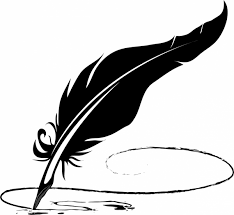As the title of the project suggests, one of the most important activities was the collaborative writing in transnational teams of the students' own stories. The method employed was that of process writing with the students revising, negotiating and enriching their stories for as long as this activity lasted. The interactivity was facilitated by the use of shared Google Docs,where students communicated and worked independently while the English teacher monitored and supported their work whenever required. This page is an introductory step with basic guidelines that supported the students in their efforts to write their stories.
Writing a good story!!! 
Brainstorming
Think about what you want your story to be about. Come up with ideas and choose the best and the one that you feel you will have the more to write about. Before you start writing, you should have decided on all the basics: plot, characters, setting; and the most important of all: the finale!
The basic components of a story
Plot: the events, conflicts, resolutions
Character(s): Decide whether you’ll write the stories in the first or the third person. When developing your characters, flesh them out in as many details as necessary. You may want to think about their background, appearance, personality or you may want to give them a ‘weird’ feature, e.g. they are claustrophobic or speak too slowly. Don’t overdo it with details, just present what you think is important for the development of the story or will make it more interesting.
Setting
Think about the place(s), the time, the weather conditions (if necessary).
Style
Use the right language for your story. How would a lawyer express himself? How would a teenager speak?
Use Direct Speech especially in moments of crisis. Don’t write ‘He asked them to go out’. Use something like ‘Go away!’ he shouted.
Structure
Make your story interesting by surprising your reader with unexpected developments.
Choose whether you’ll write in ‘present’ or ‘past’ tense. Most stories are written in past tenses, as if the story has already happened. No matter what you choose, make sure you keep the order of the events clear so that you don’t confuse the reader. Time words like Suddenly, Afterwards, Meanwhile, Before long, When help in that direction.
General rules
Read. reread and reread your story!
Don’t hesitate (or feel bored) to make changes.
Edit your work. Check the vocabulary (Can I find a better word?), spelling, grammar.
Don’t state the obvious.
Don’t overanalyze. Let the readers think for themselves.
When you are finished, find a catchy title. It should be short, not too revealing, mysterious!
Good luck!